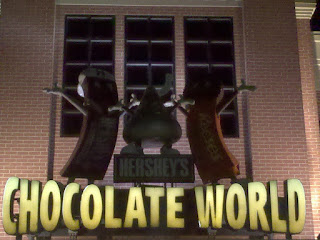by Marcy Collier
My head is spinning (literally and figuratively).
Five days before Rutgers, I took my kids to Idlewild Amusement Park in Ligonier for
Hallowboo. After trick or treating through story book forest, we rode some
rides. After the second spinning ride, I became violently ill. The spinning
wouldn’t stop. All week. My doctor prescribed vertigo medicine which made me
ten times worse. Fast forward to Fri. I have a six hour drive to New Jersey for the
Rutgers-One-On-One. What to do?
I had three plans in place, but knew regardless of how I
felt, I would get my spinning self to Jersey.
By Friday morning, the car sick feeling was still there, but the dizziness had
stopped. I drove in the rain to New
Brunswick. My fellow bloggers told me about the Blueboarders’
dinner held the night before the Rutgers
conference. I tentatively made my way down to the hotel restaurant and asked if
I could join them. Thank you, Blueboarders for welcoming me! They were the
nicest group of writers. We had a fabulous time. There’s nothing like going to
a conference and socializing with people who get you. Part way through dinner, Andrea
Brown Literary agent and Blueboarder, Jennifer Laughran
After a sleepless night, I woke up and drove to the Rutger’s
Cook Campus Center
which was a new venue this year for the conference. I listened to my fellow
bloggers’ advice (see the Monday, October 11, 2011 post). I picked up my
folder, sat down and went through it, feverishly jotting down notes. I met up
with some new and old friends as we discussed our plan for the day.
Author Olugbemisola Rhuday-Perkovich (
http://olugbemisolabooks.com/) gave
the opening talk. Her success story speech inspired everyone who listened. She
had been in the same place as each of the mentees. She could relate to our anxious
feelings and described her first Rutgers
conference. Her words of wisdom stuck with me throughout the day. She said,
“Don’t get it right. Get it written. We strive to tell our stories, but they’ll
never be perfect.”
 |
| Vivian Grey |
Founder and council chair, Vivian Grey welcomed the crowd.
She launched the Rutgers conference 42 years ago
when writers for children did not have a voice. The conference has evolved and
flourished led by an all volunteer group. With all of the changes in publishing,
Grey said, “There will always be a need for good storytellers and excellent
illustrators. Technology cannot replace the need for talent.”
 |
| Margery Cuyler |
This year’s conference was dedicated in the memory of Steven
Kroll, beloved author, advocate for children’s literature, and generous,
longtime friend of the conference. Margery Cuyler (Publisher, Marshall Cavendish Children’s Books) talked
about Steven’s hard work for the children’s book industry and his contributions
to St. Joseph’s
School.
Each mentee broke up into a five-on-five session with
agents, editors and authors, where we were able to ask questions and discuss the
current market conditions.

Then the mentees listened to a lively panel discussion
between Megan Bennett (Art Director, Abrams Books for Young Readers), Barry
Goldblatt (Agent, B. Goldblatt Literary Agency), David Lubar (Author), Deborah
Kogan Ray (Author/Illustrator), and Harold Underdown (The Purple Crayon website). Marietta Zacker (Agent, Nancy Gallt
Literary Agency) moderated the session with questions that had been submitted
prior to the conference by mentees. As an author or illustrator, you need to be
smart and savvy. An agent can play many roles. Let them identify your market
and help sell your manuscript. Sometimes a stand alone story will shine a
little more than a series. But other panelists disagreed that in certain
genres, sequels are expected. Harold Underdown said there are many secrets to
getting published. “There are different stories and different paths. Find your
own path.” David Lubar said he asks a “what if?” question every morning. “Jot
down those thoughts or you’ll lose them.” Barry Goldblatt’s advice was “write,
draw or paint as if your life depended on it.”
The groups broke for lunch. I enjoyed talking with agent and
council member Tina Wexler (ICM) and editor Annette Pollert (Simon Pulse).
Then each mentee had a one-on-one session with their mentor.
My mentor, agent Becky Vinter (Fine Print Literary Management) had terrific suggestions and spot on advice for both my query letter
and first chapter. Thank you, Becky. You’re awesome!
Before we knew it, author Jon Scieszka was onstage. He gave
an hilarious speech about his childhood and the trials and tribulations of being
an author. He talked about his new print/multimedia series, Spaceheadz which I can’t wait to buy for
my older son.
Co-conference chair, Brian Schatell gave closing remarks,
and I found it hard to believe that the conference had ended. The day flew past
me.
I got on the road, stopped over in Harrisburg to have dinner with my best friend
and made a quick stop at Chocolate World. Where else could I buy two giant
cases of Hershey’s bars for $ 25.00 for Halloween candy? Didn’t you always love
getting the big bars for Halloween? No spinning rides, though.
I arrived home after midnight, and my head is still
spinning. In a good way.
Thank you Rutger’s One-On-One mentors and council for
putting together an awe-inspiring conference. It was one of the best
experiences I’ve ever had.














